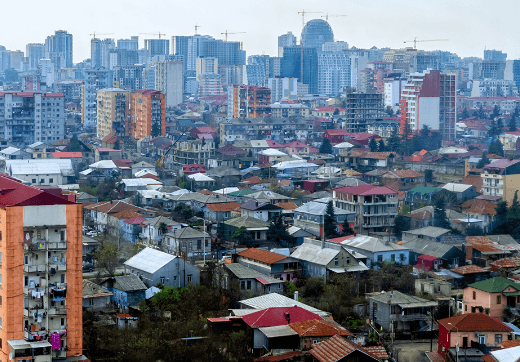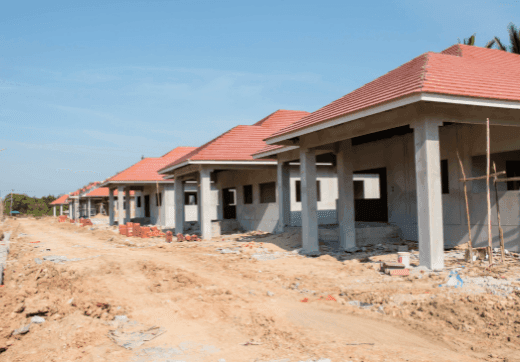Many people have little idea what people in developing countries really need and desire. Expert in the West assumes they know what the poor need, but funds for charity and aid often go to the wrong people or too poorly planned projects.
The humans in the developing world don’t want handouts. They rather want the dignity that comes from helping themselves.
But why is it more difficult to give away money than to earn it?
Helping with poverty
The battle against global poverty has been fought by people from many fields, from politicians and economists to famous actors and musicians. Yet, the problem remains because we currently look at it the wrong way. We spend most of our time looking for general theories about poverty and thinking about the perspectives of the poor themselves.
But instead, we should be examing the complexity of their lives to get a clearer idea of what kind of aid is effective and what is not. There needs to be a better understanding of how and why poor people often make self-destructive decisions like refusing medicine or buying non-nutritious food. And how can we get them to make better decisions in the future?
Poverty causes millions of death every year. There is yet to find an effective solution to this devastating problem. Many economists deal with the problem by asking if developing counties need more or less outside help to grow.
One side argues, more development aid helps those countries get on track. While it might be possible if the rich would spend over $195 billion per year for development aid in 10-20 years, poverty would be removed.
But the other side thinks that negative consequences and ineffectiveness of interventions and it is better to leave developing countries alone.
It is not easy to find a conclusive answer, and debating doesn’t solve the problem of poverty.
There are examples like the Rwandan Genocide, where Rwanda received a lot of money, and its economy boomed. But the complexity remains. It isn’t certain which factors led to Rwanda’s success if it was due to aid or other factors.
A single case isn’t enough to prove the theory’s accuracy. Both are economic reasoning that looks at the problem of poverty in the wrong way.
Rather than spending energy and time considering these big questions, it is better to look more closely at specific measures and evaluate why they work or not.
Making better decisions
The economic complexity of poor people’s life hasn’t received much scientific attention. Since most poor people live on less than $1 a day. So economics believe that the poor shouldn’t make complex economic decisions.
But that isn’t true poor people need to be very rational when it comes to economic matters. Due to the lack of financial resources and awful living conditions, they have to reflect on far more economic questions than people in developed countries.
Many economic decisions and investments poor people make can have devasting consequences that might threaten their existence. So they have to consider each decision very carefully.
When scientists would take the economic decision of poor people more seriously, it would help to understand which measures are required to fight against poverty.
For instance, many poor people reject or neglect help offered by NGOs and governments and without thinking long term. Often poor people don’t want the free vaccination that could greatly improve their lives. They rather spend their money on useless things instead of saving it for something more important.
These aren’t random or irrational decisions. They are influenced by different factors like social beliefs, economic considerations, and psychological effects.
With a deeper appreciation and understanding of how poor people make decisions, we can learn what kind of help is needed so that poor humans make better decisions for themselves.
The quality of food
Most associate poverty with hunger, yet the link between the two isn’t as obvious as it seems. Politics and scientists see hunger as one of the main reasons for poverty persistence because nobody can be productive if they are hungry.

While, of course, many people suffer from hunger today, being hungry isn’t the general cause of contemporary poverty.
The problem is that often, poor people don’t spend their money to get enough calories. They could spend more on food if needed, but they often choose to buy more expensive and tastier food than to maximize their calorie intake.
Furthermore, the issue isn’t the quantity of food but rather the quality of better food to improve their health and productivity.
Most poor people expect childing don’t get enough high-quality food. They lack many micronutrients like Iron or iodine. This lack has consequences for children’s development and adults’ economic life.
Since poor humans are often unaware of the importance of nutritious food, it would help if governments and NOGos provided better nutritious food and supplements.
So the common belief that poor people need cheaper is wrong; rather, it is about giving high-quality food they enjoy.
The importance of health
Poor humans need to stay healthy because just one sick family member can have a dangerous effect on the whole family. It might cause a drop in income and generate additional costs.
The following things are required to raise the health levels in poor countries:

1. Better provision for medical help is needed. While most developing countries have a public health system, poor people rarely use them. The reason is the system doesn’t work; many medical stations are often, and most medical center staff are unmotivated. So movements must make public health systems more reliable for people to access effective healthcare.
2. People aren’t educated enough about health issues. Even when more reliable health systems were in place, people might not use them because of cultural beliefs and lack of information.
3. Sometimes, people need the right motivation to care for themselves, as medical facts don’t always help. For example, people know the importance of vaccination, but they often don’t complete their treatment. They don’t care about things that don’t offer them immediate benefits. So the right motivation needs to be found and used.
The better we understand what people prevent from using medical support, the more we can learn how to change that behavior.
The right education
Education is another important factor in overcoming poverty. Many developing countries already addressed this by providing educational facilities to their children.
But they must not only ensure that children can attend school but also that they are actually educated. Most governments of developing countries provide children with at least an elementary education. The problem is the public school staff often don’t care about their student’s success.
Many school teachers are often absent. Additionally, there is elitist thinking in developing countries that must be questioned in order to educate more children.
For example, Indian society values elitist thinking, so the education system doesn’t focus on teaching children the most basic skills. Instead, it is very academically demanding and directed towards only the most academically minded students. The result is that a large number of children without academic disposition are ignored.
Also, parents must take care to ignore their incorrect economic assumptions that prevent many children from receiving basic education. In developing countries, parents believe it is better to spend their entire education budget on the most promising child than to support all of the children’s educational needs.
This is wrong parents need to learn that it makes more sense to give all of their children basic education.
Making sure that more children are educated is a complex but important challenge for developing societies.
Population Growth

There is a strong connection between population growth and poverty, so many countries want to regulate that population growth.
This is a complex issue as long as there is no security system or strong incentives to save money. It is a rational choice for poor parents to have many children.
Often older adults depend on their families to take care of them, so having more children means they have more support when they are old or sick. Indeed most people in developing countries get financial support from their children or even live with them.
So a solution to population growth is to improve the social protection of poorer people.
Also another way is to empower its women. Most women consciously decide to have children because, compared to staying at home serving their family, getting married and starting a family is a more attractive option.
Empowering women and strengthening their role in marriage and society would lead to fewer children. An interview with men and women reveals that women usually want fewer children than men.
An example of women’s empowerment and population control can be found in Peru. The government gave land to former peasants, and in the document, the woman of a couple was also mentioned. That couple had four children and naming them implied their power.
So measures against population growth must be considered carefully. We are only able to fight it when we really know where it comes from.
Microcredits to build businesses
When you watch the news and read online, you most likely already see the devastation of poverty in developing countries. Western countries have already tried to lift the developing world out of poverty with approaches like government aid and charitable organizations, still time after time, they failed.
The reason is aid and charity are not directed to the right people. In developing countries, women are generally the ones who decide how the family should spend its money. This makes them the most responsible spenders in their communities. So giving women aid is more likely to get effective results.
The micro-credit company called Duterimbere gives very small loans to poor people who can’t qualify for traditional bank loans. Women in the developing world often took out loans to expand their tiny businesses, which mostly sold vegetables like onions and tomatoes.
Duterimbere turned out to be successful because it let local women, instead of so-called experts, decide where money should be spent. It goes against the prevailing aid industry logic that dictates where the money should be spent.
The microloans effectively helped poor communities rise out of poverty. The problem was a lot of women were not paying them back.
Many people face the frustrating problem that they can’t get bank loans because they are considered too poor to qualify. But without a loan, they can’t start their business to earn a proper livelihood.
This cycle happens because prevailing banks often think that poor people who suffer from a poverty culture don’t want to better themselves. So banks assume when they give loans to them, they never pay them back.
But the vast success of micro creditors has shown that this thinking is incorrect. Poor people can and do pay back as long as they are accountable.
Acountabltiily was the key that enabled Duterimbere to get more loan repayments. At the beginning of the company, very few people would pay their loans back because they saw no reason to. Why would a finance company backed by the rich miss a small loan?
For example, a rice seller claimed she couldn’t pay back the loan because her stock had been stolen. A Duterimbere respective visited her house, and she found to sack of rice was hidden.
To combat such faults, the company sent a message to the borrower that they absolutely have to pay back loans. If the borrower fails to repay, she can not borrow again with no excuses.
The policy worked as soon as the rice seller heard about the new rule. She repaid her loan in full and became a reliable client. It helped make Dutermiberee not just another Western charity but a serious financial company that could help them get out of poverty.
Micro credits are given affordable credit to poor people. They actually work because families that got microcredits were more likely to invest in their own businesses and take care of their economic future.
But the problem is many small businesses funded by microcredit don’t survive very long.

Micro credits are a good way to start a business. But to grow into a promising one, they need to make additional investments. However, there are now institutions where the poor can get larger loans for reasonable interest rates. So other instruments are needed so that businesses can be economically viable and grow.
Many small businesses get started because there is no other alternative for poor people to earn money. For instance, there is no need for five small shops sot sell the same groceries in one street.
It makes good and secure jobs still the best way to fight poverty. The right instruments can support poor humans and the developing economy to grow. But there are still many more complex problems.
Insurances for the poor
People in most rich countries are lucky as they are insured against many risks like losing their job or sickness. So when there is more affordable insurance in developing countries, many people could be reduced.
Poor people have to deal with a lot of insecurities in their lives because many are peasant who greatly depends on the weather and price fluctuations. Or several jobs and will be hit hard if they lose one of them.
To combat this, many villages and neighborhoods in poorer parts people have created networks to help those in need. But compared to fully-fledged insurance systems, the kind of assistance is limited. This security covers only smaller financial problems, so they don’t help improve any real hardship.
A properly insured government should intern by providing poor people and private insurance with incentives. While it isn’t possible to ensure all risks poor people face, some risks can be insured, like a meager crop yield or other weather-related risks.
Poor people barely use private company insurance companies because they are expensive, and the people are skeptical and don’t think long-term.
People need the incentive to get proper coverage from the government when they want to enter the market.
If the poor see an insurance system that works for them, subsidies could be reduced, and a free market could exist.
Corruption
By now, you should know there is no easy solution to the question of how to end poverty. But the focus has to be on making major institutional changes. We won’t be able to fight poverty as long as there unstable political regimes.

There are many unfounded myths about developing countries. One is true that corruption is happening. It comes from a lack of accountability.
When no one tracks where a charity’s money goes or how productively it is being used, someone is most likely taking advantage to make a profit.
This lack of accountability made the Keyan government highly corrupt. It was in a position to choose which project should be funded based on a bidding competition. They blatantly abused its power by asking for 20 percent of the funding to secure the winning bid.
Corruption and lack of accountability lead to bad services because it is used otherwise from project funding, and no one feels responsible that the project is happening. This means donor-funded projects that start with the best intention often fail.
For example, the maize mills built all over Africa and were part of a plan to energize local economies are not used anymore. There is no fuel to run them, or no one in the community knows how to fix them.
In many cases, projects never produce enough benefits to cover their initial investments.
Corruption is a huge problem because, e.g., corrupt officials often steal money from projects dedicated to fighting poverty. To achieve big institutional changes in these countries, a new, more democratic political regime needs to be implemented.
While these government changes are important to battle poverty, there is also room for local improvements. Often small and local actions can be extremely effective when political shortcoming of governments like corruption is happening.
When people are involved who are fully accountable, it means earnings are more likely to have a return on investment. And the intentions of donors and investors that projects have a positive impact are more likely met.
Sometimes all that is required to fight corruption is information from economists and public protest. Many simple local measures can lead to necessary political improvement to fight poverty effectively.
Finding dignity in their work
Many think that those in poverty can help themselves if they just receive enough charity. But money is not enough people need to feel dignity to be fully encouraged to transform their lives. To get dignity, they need to work their way out of poverty.
For instance, a small bakery that was set up in Kigali by the Rwandan government were 20 poor women employed. The bakery was financed by two charities and sold goods to government offices.
While this may sound good on paper, it wasn’t working. The bakery generated losses of $650 a month and could only continue its service with charity-supported money. The women working there earned only 50 cents a day, which wasn’t enough to raise them out of poverty.
The solution was empowerment and accountability. Instead of running the bakery like a business, the women would be accountable for the cost and sales. They earn a base wage and get a commission for the total sales made. It effectively connected their wages to the outcome of the project.
The employees started to feel like they owned a stake in the bakery’s success and began making decisions and improving themselves. The bakery grew so much that women quadrupled their income-earning two dollars a day with more than the typical earnings of Kigali women.
The success and sense of ownership gave the woman dignity and confidence to no longer rely on support from others. They felt confident in choosing for themselves what they wanted.
Trust in poorer countries
In more developed countries, we often take trust for granted. When you hire a builder, you are more likely to trust them to construct your house according to regulations. And if the builder cheats on you, the justice system can help you make them accountable for.
But in poorer countries, trust cannot be taken for granted the same way because of a lack of regulation and laws.

It may be the case when you hire a guard in the developing world that he steals money and jewelry rather than protect it, even when two months of extra salary is given to help his children with school fees.
While normally, you would report the guard to the police. But in countries like Rwanda, he would have unfairly served punishment because the local justice system is brutal and unreliable. So the only option when you can’t trust the person or the justice system is to fire him.
The Rwandan government increases the lack of trust by going to public places and regularly spying on what people are saying about politicians. This lack of trust hurts a nation’s potential development.
As an example, in Karachi, Pakistan, half of the population lives in slums. They don’t want to get affordable housing plans because they lack trust. In the past housing, planers promised affordable housing and never delivered it. Of course, the poor people were skeptical of being tricked.
One manager for such a project needed to live close to the construction site in order to build trust with the locals who watched him closely.
Investment into funding projects
Giving money away that is used efficiently is actually much harder than earning it. This problem happens through frequent failures of philanthropic schemes in developing countries.
Not only philanthropy fails to lift people out of poverty also traditional financial investments. Investors refuse to lend poor people money because they view them as unlikely to provide immediate returns.
However, there is a third way which is not philanthropy nor traditional businesses but rather a combination of the two.
This approach is called patient capital, where money is invested into projects over long periods of time with an underlying return that maybe is below market expectations. It forces developing and supporting a business by not giving handouts or earning quick returns.
Such a capital firm often invests large amounts into entrepreneurial schemes and aims to deliver important social benefits like low-cost quality housing and safe water systems.
The patient capital approach combines the best parts of the market and philanthropic approaches. For normal investments, patient capital expects to get returns from the funding it provides. It avoids the pitfall of giving money without attaching accountability.
Also, they entrust funds to local people instead of allowing outsiders or “experts” to decide where to spend the money. This way, locals who are most familiar with problems can control where to invest in solutions.

For example, in a housing project in Pakistan, a local man who had a unique understanding of the local people knew what they wanted. First, build small houses for themselves and then expand as they could afford to. He helped to decide which land to build on because he knew more than outside experts ever could. He also helped the patient capital firm to gain the trust of the community.
Only an organizer with local knowledge could prove so important to a project’s success.
How to fight poverty?
The fight against poverty is complex, and there is no easy solution. But with a better understanding of the lives of poor people, a close examination of the measure can help win the fight against poverty.
Measures against poverty will only be effective when we understand the circumstances of poor people’s decisions. A common misunderstanding is that the poor are incapable of thinking rationally about money. However, they are just as rational as the rest of us.
We often think of helping others by developing our own ideas about what would work best and then following through with our solutions. But to truly help others, you should first find out what they need and want and not what you think they want and need. So to truly understand others put yourself in their shoes. When you live with those, you find out how you can help with the struggles they face.
Traditional development aid often fails because the recipients are not held accountable. And local people aren’t empowered to decide how to use aid. But the new philanthropic investment called patient capital shows promising results in addressing these issues.
Being deducted about economic science, numeracy and literacy can help poor people make better decisions and improve their lives.
FAQ
How can we fight poverty?
There are several ways we can fight poverty. One approach is to implement effective social policies and practices that help reduce poverty and increase economic security. This can involve providing resources and support to those living in poverty, such as access to affordable housing, healthcare, and education. Additionally, eradicating poverty requires addressing the underlying causes of poverty, such as inequality and lack of opportunities. By implementing inclusive policies and practices, we can help create a more just and equitable society.
What is the poverty line?
The poverty line is the minimum income level that is considered necessary to meet basic needs. It is often used as a measure to determine who is living in poverty. The poverty line varies from country to country and is adjusted for factors such as the cost of living and household size. It is an important tool for understanding the prevalence of poverty and developing strategies to address it.
How has the COVID-19 pandemic affected poverty?
The COVID-19 pandemic has had a significant impact on poverty worldwide. Lockdown measures and economic disruptions have led to job losses, reduced incomes, and increased financial insecurity for many people. As a result, the number of people living in poverty has risen, and progress in reducing poverty has been slowed. The pandemic has highlighted the need for effective social safety nets and policies that can help mitigate the impacts of crises and support those most affected.
How can I help fight poverty?
There are several ways you can help fight poverty. One way is to support organizations and initiatives that work towards poverty reduction. This can include donating money, volunteering your time, or advocating for policies that address the root causes of poverty. Additionally, you can help raise awareness about poverty and its impacts by sharing information with others and engaging in conversations about poverty and social policy. Together, we can make a difference in the lives of people living in poverty.
What is the 2030 goal for poverty reduction?
The 2030 goal for poverty reduction is a global target set by the United Nations. It aims to eradicate extreme poverty and reduce poverty in all its forms by the year 2030. This goal, known as Sustainable Development Goal 1, acknowledges that poverty is a complex issue that requires comprehensive strategies and collaboration between governments, organizations, and individuals. Achieving this goal will require concerted efforts to address the root causes of poverty and promote inclusive and sustainable development.
How do tax credits and child care help reduce poverty?
Tax credits and child care can play a crucial role in reducing poverty. Tax credits, such as the Earned Income Tax Credit (EITC), provide financial assistance to low-income individuals and families by reducing the amount of taxes they owe or providing refunds. This can help increase income and alleviate financial hardships. Similarly, affordable and accessible child care can enable parents, particularly single parents, to work or pursue education, improving their economic security and reducing the likelihood of living in poverty. These policies provide crucial support to vulnerable families and contribute to poverty reduction efforts.
How does tax policy impact poverty?
Tax policy can have a significant impact on poverty. Progressive tax policies, which tax higher incomes at a higher rate, can help redistribute wealth and reduce income inequality. By implementing fair and equitable tax policies, governments can generate revenue to invest in social programs and services that benefit those living in poverty. On the other hand, regressive tax policies, which disproportionately burden lower-income individuals, can exacerbate poverty and widen the wealth gap. It is important for tax policies to be designed in a way that supports poverty reduction and promotes economic justice.
What is the role of the World Bank in poverty reduction?
The World Bank plays a significant role in poverty reduction efforts globally. It provides financial assistance, technical expertise, and policy advice to countries to help them reduce poverty and promote sustainable development. The World Bank works with governments, civil society organizations, and other stakeholders to implement projects and initiatives that address the root causes of poverty and improve living conditions for those in need. Through its lending programs, research, and knowledge sharing, the World Bank contributes to global efforts to eradicate poverty and achieve economic and social progress.
Is progress being made in reducing poverty?
Progress is being made in reducing poverty in many parts of the world, but challenges remain. The global poverty rate has been declining over the years thanks to various efforts and interventions. However, the COVID-19 pandemic has reversed some of these gains and highlighted the vulnerabilities that still exist. It is important to continue investing in poverty reduction strategies, strengthening social safety nets, and addressing the root causes of poverty to ensure sustained progress. With collective action and commitment, we can continue to make a difference in the lives of people living in poverty.
How can we help families experiencing poverty?
There are several ways we can help families experiencing poverty. One way is to support programs and services that provide targeted assistance to vulnerable families, such as access to affordable housing, healthcare, and education. Additionally, promoting economic opportunities and supporting job training and skills development can help families increase their income and move out of poverty. It is also important to address the systemic barriers and social inequalities that contribute to poverty to ensure that all families have equal opportunities to thrive.